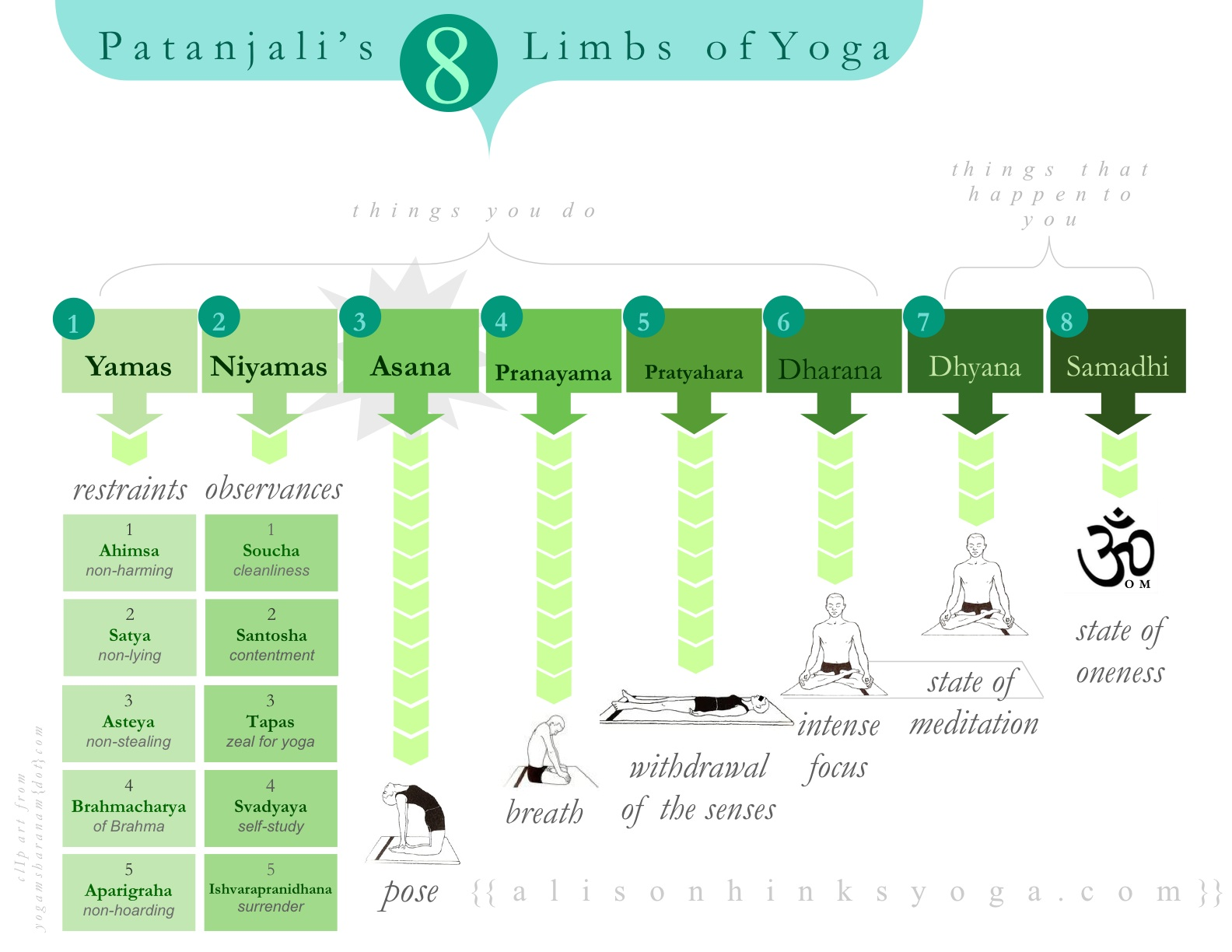Yoga Philosophy
Eight Limbs of Yoga

- Yamas: ethical considerations
- Niyamas: self-observation / discipline
- Asana: physical poses
- Pranayama: breath controls
- Pratyaphara: withdrawal of senses
- Dharana: concentration
- Dhyana: meditation
- Samadhi: enlightenment/peace
Yamas
Ahimsa: non-harming; maintaining both harmonious relationships in the world and a tranquil inner lifeSatya: truthfullness; seeing and reporting things as they are rather than the way we would like them to be.Asteya: non-stealing; practice giving, of both tangibles and intangibles such as information and emotions, any chance you getBrahmacharya: moderating the senses; turns the mind inward, balancing and supervising the senses, and leads to freedom from dependencies and cravings.Aprigraha: non-attachment; all the things of the world are yours to use, but not to own
Niyamas
Saucha: cleanliness; cleansing the body as well as the mindSantosha: contentmentTapas: discipline; focuses energy, creates fervor, and increases strength and confidence.Svadhyaya: self-study; to remember, to contemplate, to meditate onIshvara Pranidhana: self-surrender; giving self to a higher purpose
Purusharthas: four aims of life
Dharma: duty; truth or right way of living, and one’s true purpose in life.Artha: wealth, material comfortKama: pleasureMoksha: freedom, self-realization and liberation from the cycle of reincarnation
Four Noble Truths of Buddism
Dukkha: truth of the presence of sufferingSamudaya: truth of the cause of sufferingNirodha: truth of the end of sufferingMagga: truth of the path to end suffering
Eight Fold Path of Buddism
Samma ditthi: right understandingSamma sankappa: right intentionSamma vaca: right speechSamma kammanta: right actionSamma ajiva: right livelihoodSamma vayama: right effortSamma sati: right mindfullnessSamma samadhi: right concentration
Four Aspects of True Love
Maitri: kindnessKaruna: compassionMudita: joyUpeksha: freedom
____
7 October 2022
Share this post:
